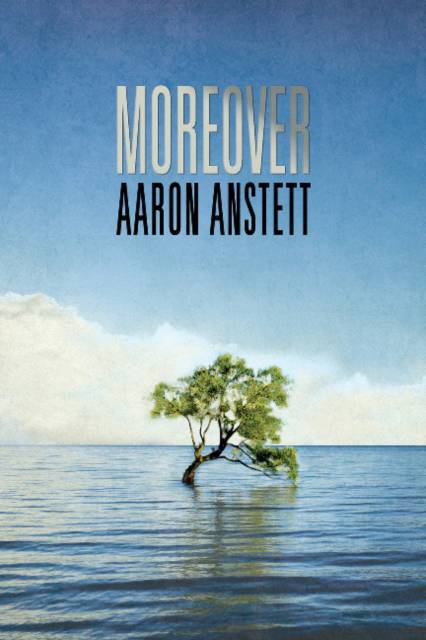
- Afhalen na 1 uur in een winkel met voorraad
- Gratis thuislevering in België vanaf € 30
- Ruim aanbod met 7 miljoen producten
- Afhalen na 1 uur in een winkel met voorraad
- Gratis thuislevering in België vanaf € 30
- Ruim aanbod met 7 miljoen producten
Zoeken
Omschrijving
Poetry. The poems in Aaron Anstett's MOREOVER, by turns laconic and garrulous, hard-boiled and tender, magnify gaps and unreliabilities in the surface of things through which the depths of an underlying desolation, a nameless existential care, and the mystery of love may be glimpsed; they make a swaying bridge over the abyss of loss. "Number among my umpteen flaws detached glibness," he writes; "Who would disagree that little's glitchless?" What he calls his glibness, transmitted with a compressed but graceful musicality, often attains an unsentimental lyricism all the more touching for its reticence. His audacious imagination and relentless intelligence give rise to a richly ironic humor that is often valedictory, somber, even grim, but never without profound affection and attention.
"What makes Aaron Anstett's poems unforgettable? Is it the last known photograph of Robert Desnos, in Theresienstadt, 1945? A pigeon feather on pavement? A speaker who asks, 'Who's most dumbstruck anything exists?' No to all of those, I'd say, for what this poet gives us are not just things and their tragedies but moments in which to witness our own gestures toward life, the acts of willed and failed attention that constitute hope--a hope both breathtaking and fleeting, as the poems unfurl line by line, in a syntax built to mend, then break, then mend again, your heart."--Susan Tichy
"What makes Aaron Anstett's poems unforgettable? Is it the last known photograph of Robert Desnos, in Theresienstadt, 1945? A pigeon feather on pavement? A speaker who asks, 'Who's most dumbstruck anything exists?' No to all of those, I'd say, for what this poet gives us are not just things and their tragedies but moments in which to witness our own gestures toward life, the acts of willed and failed attention that constitute hope--a hope both breathtaking and fleeting, as the poems unfurl line by line, in a syntax built to mend, then break, then mend again, your heart."--Susan Tichy
Specificaties
Betrokkenen
- Auteur(s):
- Uitgeverij:
Inhoud
- Aantal bladzijden:
- 82
- Taal:
- Engels
Eigenschappen
- Productcode (EAN):
- 9781944697037
- Verschijningsdatum:
- 1/05/2016
- Uitvoering:
- Paperback
- Formaat:
- Trade paperback (VS)
- Afmetingen:
- 152 mm x 229 mm
- Gewicht:
- 131 g

Alleen bij Standaard Boekhandel
+ 36 punten op je klantenkaart van Standaard Boekhandel
Beoordelingen
We publiceren alleen reviews die voldoen aan de voorwaarden voor reviews. Bekijk onze voorwaarden voor reviews.








